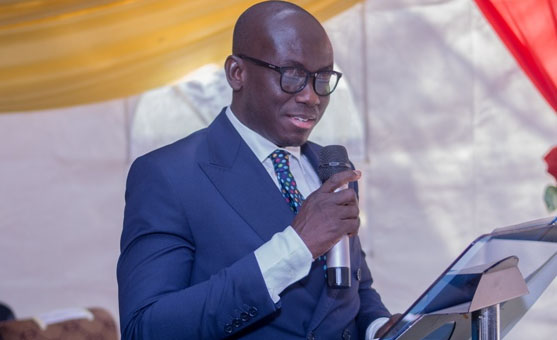Godfred Yeboah Dame
Attorney General, Godfred Yeboah Dame, has indicated that the new Conduct of Public Officers Bill, 2021, has been designed to strengthen the fight against corruption in Ghana.
According to him, “the current legislation on corruption in Ghana is inadequate to deal extensively with public accountability, hence the need for a legislation which meets the minimum standards contained in the United Nations Convention against Corruption and the African Union Convention on Preventing and Combating Corruption, regarding public officer accountability and corruption.”
Mr. Dame was speaking at a stakeholders’ workshop on the Conduct of Public Officers Bill, 2021 in Accra on Monday.
The bill seeks to provide a clear understanding of the role a public officer is expected to play in the discharge of duties and performance of functions.
Mr. Dame underscored the need for public officers to protect the public interest against their personal interest, stressing that “unethical behaviour in public office has been a major cause of political instability in Ghana,” adding “the bill underscores the fundamental point that the principal test of ethics is the public interest. When public officials act in breach of the public interest, they have acted unethically.”
He said “the need to lay down a set of far-reaching and perhaps, a more fit for purpose set of regulations for the conduct of public officers cannot be gainsaid. It is to this urgent need that the Conduct of Public Officers Bill 2021, seeks to respond. The Conduct of Public Officers Bill is to give a more consequential effect to Chapter 24 of the 1992 Constitution.”
Mr. Dame stated that the bill will serve the purpose of legislations in other jurisdictions like the United States Ethics in Government Act of 1978 and the Officers Ethics Act of Kenya.
He expressed the hope that the process of enacting the bill into law commencing with the stakeholders’ meeting will be rapid and culminate in the enactment of a law to address issues regarding financial portfolios held by public officers before assuming office, for instance link to family business, professional practice, property and other assets, among others.
“The bill also seeks to address matters relating to sexual harassment and provides a gamut of stringent administrative measures and sanctions to deal with violations of the law, ranging from a bar against holding public office to penal measures,” Mr. Dame stressed.
Again, he said the bill seeks to strengthen the role of the Commission for Human Rights and Administrative Justice (CHRAJ) in the investigation of allegations of contravention of or non-compliance with the Code of Conduct for Public Officers, including conflict of interest, non-declaration of assets and illicit enrichment.
He added that the bill addresses the conditions under which a person is qualified or disqualified from holding public office; the declaration of assets and liabilities in accordance with Article 286; legal proceedings against public officers; the Code of Conduct for adherence to guiding principles by public officers.
Mr. Dame added that the passage of the bill into law should not prevent other public institutions from further improving accountability and ethical conduct at the work place by enacting specific code of discipline to meet the peculiar demands of their establishment.
The workshop was attended by officials of the National Media Commission, the AG’s Office, Public Services Commission, CHRAG, Ghana Integrity Initiative, the Judicial Service, Ghana Immigration Service, Ghana Prisons Service, Bank of Ghana, Electoral Commission, Ghana National Fire Service, and the Ghana Police Service.
BY Gibril Abdul Razak


